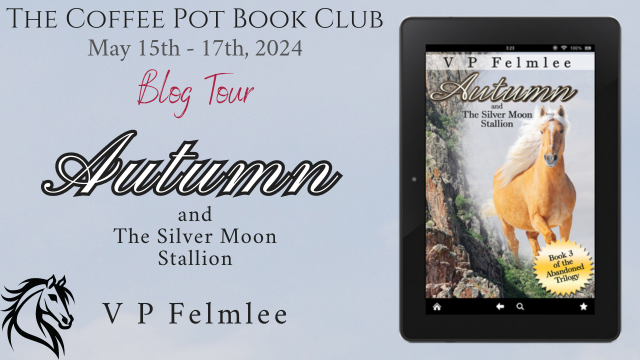Their Castilian Orphan
By Anna Belfrage
By Anna Belfrage
Publication Date: 23rd March 2024
Publisher: Timelight Press
Page Count: approx. 400 Pages
Genre: Historical Fiction, Romantic Historical Fiction, Historical Romance
It is 1294 and Eustace de Lamont is back in England after five years in exile. He will stop at nothing to ruin Robert FitzStephan and his wife, Noor d’Outremer.
Robert’s half brother, Eustace de Lamont, has not mellowed during his absence. He is more ruthless than ever, and this time he targets Robert’s and Noor’s foster son, Lionel.
Lionel is serving King Edward as a page when Eustace appears at court. Not only does Lionel become the horrified witness to Eustace’s violent streak, Eustace also starts voicing his suspicions about Lionel’s parentage. The truth about Lionel’s heritage is explosive—should King Edward find out, all would be lost for Robert and Noor.
In October of 1294, Wales rises in rebellion. Robert must leave his family unprotected to fight the Welsh rebels on the king’s behalf, comforted only by the fact that Eustace too is called to fight.
Except that Eustace has no intention of allowing his duty to his king—or a mere rebellion—come between him and his desire to destroy Robert FitzStephan . . .
Excerpt
In which Lionel grapples with who he really is.
Lionel had spent the last few days day mulling over what Papa had told him, and with every passing hour, the anger in him grew. They’d lied to him! All of them—Mama, Papa, Elias and John, Tom and Harry. Even Rhys, because he too must have known. Mayhap that was why he so often told Lionel of Wales, taught him the odd Welsh word. His attempt at giving Lionel something of his true homeland when he was likely sworn to secrecy by FitzSte—no, not even at his angriest could he think of Papa as anything but Papa.
It had been a relief to convince Papa to allow him to return to the service of the king. But as he hurried from task to task, his mind whirred. He was Welsh, not Castilian. He did not have a father named Enrique, no, his father was an Owain—assuming the man had given Mama his true name. But why wouldn’t he? Unless, of course, he was a Welsh nobleman, determined to hide his son and heir from the long reach of the marauding Englishmen. Lionel swallowed, casting a look at King Edward, presently divesting himself of the clothes he’d worn when receiving the delegation of London merchants. There he was, the man who’d ordered all that marauding. Perhaps it was because of King Edward that the unknown Owain had never returned to claim his son. Maybe he, like Rhys, had lost everything as he fought for his prince—but in difference to Rhys, he’d died on the battlefield.
All these thoughts made his head ache. There was a moment when he’d almost wept because if he was Welsh, if his unknown father was a man who’d died fighting the English, how was he to serve the English king?
“Pah!” Soaking Sally said when he shared all this with her. He found her doing laundry—where else?—and was now sitting on an overturned barrel beside her as she scrubbed the king’s shirts. “First of all, you do not know who that father of yours was fighting for. Many Welshmen fought for our king, as disenchanted as any Englishman by that faithless worm Dafydd ap Gruffydd.”
“Not all Welsh considered him faithless.” Rhys rarely spoke of that last Welsh prince, but when he did, his voice grew heavy with loss.
Sally wiped at her ruddy face and picked up the next shirt. Strong hands scrubbed it up and down in a steady rhythm. “Nay, of course not. But men like Owain de la Pole most certainly did, happy to support our king instead.”
“Owain?” Lionel asked.
“A right fine man, that one,” Soaking Sally said. “But not, I think, your father.”
“No?”
“Well, not unless he wanted to hide his bastard get from his wife.”
Lionel flushed. “So you think I am a bastard?”
Sally stopped her scrubbing, dropping the shirt into the water. “Does it matter? You are Lionel, lad. Truth be, the fact that you do not know who fathered you is something of a blessing—you can become whoever you want to be.”
“Except the king has said I must remain Castilian.”
“And who in God’s name would want to be Welsh instead? You told me before how your Castilian father shares blood with both the Castilian queen and our own beloved dead queen. That is not a bad heritage to claim.”
“But it is a lie!”
Soaking Sally dunked the shirt a couple of times before transferring it to a barrel of clean water. “Who cares?” she said, and Lionel stormed off.
He almost fell down the stairs in his haste, coming to an abrupt halt when he heard Eustace de Lamont’s voice from the passage.
“. . . and I told him he could stay with her in that house he has in Clerkenwell.”
“He’s your clerk,” a female voice said. Lionel pulled a face: Florence de Lamont was a beautiful lady, but her voice was uncomfortably shrill. “And leaving aside the fact that he should not be consorting with women, he should be here, with you.”
“Humphrey is a loyal servant,” Eustace said, his voice already fading away. “He deserves a reward. And the priory of St John is not that far away should I need him.”
Lionel waited until they were well and truly gone before he set off at a run. He had to find Papa or Mama. Now.
Pick up your copy of
Anna Belfrage
Had Anna been allowed to choose, she’d have become a time-traveller. As this was impossible, she became a financial professional with three absorbing interests: history, romance and writing. Anna has authored the acclaimed time travelling series The Graham Saga, set in 17th century Scotland and Maryland, as well as the equally acclaimed medieval series The King’s Greatest Enemy which is set in 14th century England. Anna has just released the final instalment, Their Castilian Orphan, in her other medieval series, The Castilian Saga,which is set against the conquest of Wales. She has recently released Times of Turmoil, a sequel to her time travel romance, The Whirlpools of Time, and is now considering just how to wiggle out of setting the next book in that series in Peter the Great’s Russia, as her characters are demanding. . .
All of Anna’s books have been awarded the IndieBRAG Medallion, she has several Historical Novel Society Editor’s Choices, and one of her books won the HNS Indie Award in 2015. She is also the proud recipient of various Reader’s Favorite medals as well as having won various Gold, Silver and Bronze Coffee Pot Book Club awards.
“A master storyteller”
“This is what all historical fiction should be like. Superb.”
Connect with Anna:





























